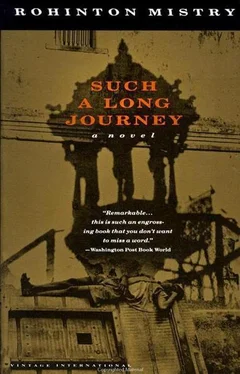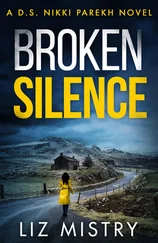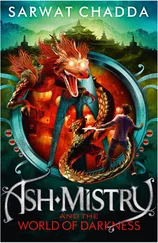Sohrab’s only perceptible failure during his school years befell his flirtation with insects. In the eighth standard he was awarded a prize for general proficiency, a book called Learning About Entomology. He read it, pondered the contents over a few days, then started catching butterflies and moths with a home-made net. He killed them in a tin containing wads of petrol-soaked cotton. When the fluttering ceased, he opened the tin and unfolded the wings gently. The wings were always clenched tight over the legs and proboscis, folded in the reverse of their natural direction, as if, in extremis, the butterfly had tried to fend off the noxious fumes by covering its head. In a race with rigor mortis, he stretched the four membranous wings symmetrically on a spreading board (also home-made). A few days later, dry and light as tissue paper, the butterfly would be ready for mounting.
Everyone praised his beautiful work. They admired the lovely colours and patterns on the wings as if he had had a personal hand in designing them. The specimens were pinned through their thoraxes and neatly mounted in the display case which he made from plywood with his great-grandfather’s tools. This was Gustad’s greatest source of joy: to see Sohrab use those tools. He repeated what he said so often, that it must be in the blood, this love of carpentry.
Then the moths and butterflies began to fall apart. Soon, maggots were crawling inside the case, and it was a nauseating sight. Day after day, Sohrab could do nothing but watch, paralysed. When the maggots finished their work, they disappeared as suddenly as they had arrived, and Sohrab threw the butterfly case on the dark shelf in the WC chawl.
But this failure, instead of scotching rumours of his genius, was not allowed to be his failure. Gustad was only too glad to shoulder the blame. ‘It was my fault,’ he said, ‘for getting petrol instead of carbon tetrachloride, and for not obtaining the proper drying agent Sohrab wanted.’
Sohrab chased no more after butterflies. To be the world’s premier insect scientist was deleted from Gustad’s catalogue of careers for his son. Afterwards, Sohrab focused only on mechanical things and things of the imagination. He dismantled and reassembled the alarm clock, repaired his mother’s mincer, and fashioned a still-projector with a magnifying glass found in Gustad’s desk. He projected on the front-room wall the frames from comics that came with the Sunday paper: Dagwood Bumstead’s family, or a life-size Phantom. Major Bilimoria was always there for the show, rising often to pose beside the image — imitating the Phantom by swinging a fist and uttering sounds like thud! pow! or wham! Then it would be time for the Sunday dhansak lunch.
Gustad’s and Dilnavaz’s proudest moment in Khodadad Building came when Sohrab put on a home-made production of King Lear, pressing Darius into service, plus a host of school and Building friends. The performance was held at the far end of the compound, and the audience brought their own chairs. Sohrab, of course, was Lear, producer, director, costume designer and set designer. He also wrote an abridged version of the play, wisely accepting that even an audience of doting parents could become catatonic if confronted by more than an hour’s worth of ultra-amateurish Shakespeare. But it was not till Sohrab was in college that it struck him curiously: Daddy never made pronouncements or dreamed dreams of an artist-son. It was never: my son will paint, my son will act, he will write poetry. No, it was always: my son will be a doctor, he will be an engineer, he will be a research scientist.
Now, as he wiped the nib and screwed on the bottle cap, he remembered that Daddy had showed him the holder-steel once, when the age of pencils was ending. With the age of ink came plans for the future. The dream of IIT took shape, then took hold of their imaginations. And the Indian Institute of Technology became the promised land. It was El Dorado and Shangri-La, it was Atlantis and Camelot, it was Xanadu and Oz. It was the home of the Holy Grail. And all things would be given and all things would be possible and all things would come to pass for he who journeyed there and emerged with the sacred chalice.
To try and separate the strands of enthusiasm which went into that noble fabrication was futile. To determine whose idea it was, and who was to blame, was as difficult as identifying the monsoon’s first raindrop to touch the earth.
Sohrab saw the two letters on the desk. He read the Major’s quickly, then his father’s elegantly penned nib-and-ink response, while Dilnavaz rose for the second time. It was her duty, she felt, to say something about last night. But he spoke first: ‘Did you read Major Uncle’s letter?’
‘What letter?’ He held it up. ‘Must be an old one,’ she said. ‘You know how Daddy likes to collect things.’
‘No, this came just four weeks ago. See the postmark.’
Gustad stumbled past to the bathroom, rings around his eyes. She waited for the stopper’s tell-tale metallic rattle. ‘He slept so late last night.’ Her voice was gently accusing.
Later, when Gustad was having his tea she said, ‘We saw the letter.’
‘I don’t know who is “we”. For me you are the only one present here.’
She ignored that. ‘You have started hiding mail. I wonder what else you are hiding.’
‘Nothing! I wanted to think about Jimmy’s letter without getting a thousand suggestions from all the geniuses in this house. That’s all.’
‘A thousand suggestions, is it?’ Dilnavaz was stung. ‘For twenty-one years we discuss everything together. Now I am a nuisance? And Jimmy doesn’t even tell the details. How do you know you are doing the right thing?’
Gustad said the details did not matter, it was the principle, of helping a friend. ‘All this time, it has been Major this and Major that. I said forget him, he is vanished like a thief. But no. Now he writes for help, I say yes, and you are still not pleased.’
‘And what if it is something dangerous?’
‘Rubbish.’ He pointed to Sohrab. ‘Why is that one grinning like a donkey?’
‘Don’t get angry again, Daddy,’ he said, ‘I think you made the right choice, but—’
‘Oh! He thinks Daddy made the right choice! Haven’t you told him he is no longer my son?’ Fiercely sarcastic, Gustad bowed his head mockingly. ‘Thank you, thank you sir! Thank you for your approval. Go on. But what?’
‘I was just thinking about Jimmy Uncle and your friends talking politics. He always used to say, “Only two choices: communism or military dictatorship, if you want to get rid of these Congress Party crooks. Forget democracy for a few years, not meant for a starving country.” ’
His imitation of the Major’s clipped bass-baritone was very good, and Dilnavaz laughed. Gustad enjoyed it too but was careful to conceal his approval, as Sohrab continued: ‘Imagine if Jimmy Uncle is planning a coup to get rid of our corrupt government.’
With the saucer of tea in one hand, Gustad supported his forehead in the other. ‘Idiotic-lunatic talk is starting again. Imagine something useful, imagine yourself in IIT!’ He kneaded his forehead. ‘What Jimmy used to say is just a way of talking. Everybody does it when there are droughts and floods and shortages, and things go wrong.’
‘I know, I know, I was only joking. But what about the leaders who do wrong? Like the car manufacturing licence going to Indira’s son? He said Mummy, I want to make motorcars. And right away he got the licence. He has already made a fortune from it, without producing a single Maruti. Hidden in Swiss bank accounts.’ Dilnavaz listened intently as Sohrab described how the prototype had crashed in a ditch during its trial, yet was approved because of orders from the very top. She was the self-appointed referee between father and son, her facial expressions registering the scores.
Читать дальше












